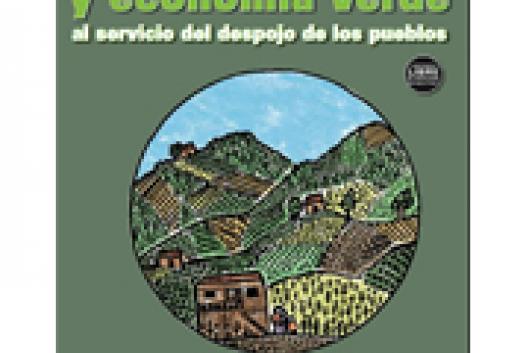The Alianza Biodiversidad, Friends of the Earth Latin America and the Caribbean (ATALC) and World Rainforest Movement (WRM) have jointly published a new special edition (in Spanish) of the magazine "Biodiversidad, Sustento y Culturas" (Biodiversity, Livelihoods and Cultures), devoted to an examination of the advance and impacts of the “green economy” in Latin America and entitled “Leyes, políticas y economía verde al servicio del despojo de los pueblos” (Laws, policies and the green economy at the service of the plunder of the peoples).
The publication is available in pdf here: Leyes, políticas y economía verde al servicio del despojo de los pueblos
WRM conducted three research studies on REDD projects which resulted in three articles included in this special edition. Each of these articles has been translated into English:
- The Monte Pascoal-Pau Brasil ecological corridor carbon, community and biodiversity initiative: Another carbon offset failure. By Jutta Kill. This study looks at one particular forest offset project in the south of Bahia, Brazil, that has been marketed as a pilot project for financing restoration of “degraded” forests through the sale of carbon credits. To read the article, click here: http://wrm.org.uy/wp-content/uploads/2013/11/Carbon_community_and_biodiversity_initiative.pdf (also available in Spanish, Portuguese and French).
- Observations on a private REDD project in the state of Acre, Brazil. By the Centro de Memória das Lutas e Movimentos Sociais da Amazônia. This study looks at the Purus Project, which is purportedly aimed at “generating sustainable economic opportunities for the local communities” and “implementing social projects” while mitigating deforestation and preserving biodiversity in the project area. To read the article, click here: http://wrm.org.uy/wp-content/uploads/2013/11/Observations_on_a_private_REDD_project_in_Acre.pdf (also available in Spanish and Portuguese).
Although both projects (in Bahia and Acre) are certified, which is meant to guarantee – according to the agreements signed – positive social impacts for the local communities, the actual experience has demonstrated that the communities are not in fact benefitting from these REDD projects. On the contrary, they have been negatively affected by these projects which primarily serve the interests of large landholders, including private companies and big conservation NGOs, as well as the state government itself, in the case of Acre.
- Masking the Destruction: REDD+ in the Peruvian Amazon. By Joanna Cabello. This study examines the REDD process in Peru. The Peruvian government has been one of the main promoters of the REDD mechanism in the country, through countless pilot projects that impose market logic on forests.
The study reveals how the REDD process has not contributed to changing, but rather has served to reinforce, the dominant economic model in Peru, based on destructive extractive activities in the Amazon region, primarily by the mining and energy industries, among others. In these circumstances, REDD is an unlikely ally for communities struggling against deforestation and in defence of their territories. To read the article, click here: http://wrm.org.uy/wp-content/uploads/2013/11/Masking_the_Destruction.pdf (also available in Spanish and Portuguese).
By sharing these experiences we hope to contribute to reflection and discussion around the impacts of REDD projects on local communities.
The WRM Team
